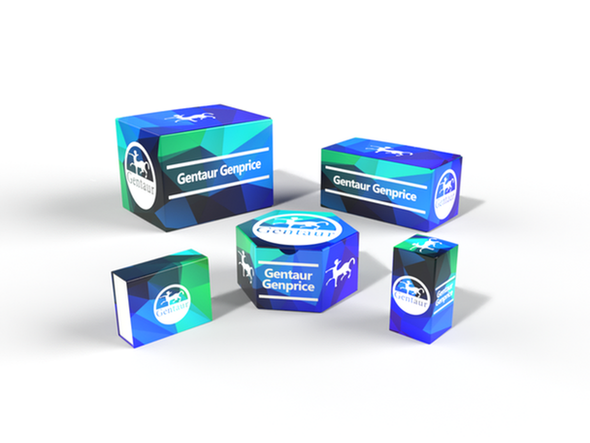749
Mouse Tissue Polypeptide Antigen (TPA) ELISA Kit | KTE70070
- SKU:
- 749-KTE70070
- Availability:
- Usually ships in 5 working days
Description
Mouse Tissue Polypeptide Antigen (TPA) ELISA Kit | KTE70070 | Gentaur UK, US & Europe Distribution
Application: This Mouse Tissue Polypeptide Antigen (TPA) ELISA Kit employs a two-site sandwich ELISA to quantitate TPA in samples. An antibody specific for TPA has been pre-coated onto a microplate. Standards and samples are pipetted into the wells and anyTPA present is bound by the immobilized antibody. After removing any unbound substances, a biotin-conjugated antibody specific for TPA is added to the wells. After washing, Streptavidin conjugated Horseradish Peroxidase (HRP) is added to the wells. Following a wash to remove any unbound avidin-enzyme reagent, a substrate solution is added to the wells and color develops in proportion to the amount of TPA bound in the initial step. The color development is stopped and the intensity of the color is measured.
Detection Method: Colorimetric
Conjugate: N/A
Sample Type: Cell culture supernatants#Serum#Plasma#Other biological fluids
Assay Type: Multiple steps standard sandwich ELISA assay with a working time of 3-5 hours. It depends on the experience of the operation person.
Kit Component: • Mouse Tissue Polypeptide Antigen microplate
• Mouse Tissue Polypeptide Antigen standard
• Mouse Tissue Polypeptide Antigen detect antibody
• Streptavidin-HRP
• Standard diluent
• Assay buffer
• HRP substrate
• Stop solution
• Wash buffer
• Plate covers
Features & Benefits: Mouse Tissue Polypeptide Antigen (TPA) ELISA Kit has high sensitivity and excellent specificity for detection of Mouse TPA. No significant cross-reactivity or interference between Mouse TPA and analogues was observed.
Calibration Range: Please inquire
Limit Of Detection: Please inquire
Usage Note: • Do not mix components from different kit lots or use reagents beyond the kit expiration date.
• Allow all reagents to warm to room temperature for at least 30 minutes before opening.
• Pre-rinse the pipet tip with reagent, use fresh pipet tips for each sample, standard and reagent to avoid contamination.
• Unused wells must be kept desiccated at 4 °C in the sealed bag provided.
• Mix Thoroughly is very important for the result. It is recommended using low frequency oscillator or slight hand shaking every 10 minutes.
• It is recommended that all samples and standards be assayed in duplicate or triplicate.
Storage Instruction: The unopened kit should be stored at 2 - 8°C. After opening, please store refer to protocols.
Shipping: Gel pack with blue ice.
Precaution The product listed herein is for research use only and is not intended for use in human or clinical diagnosis. Suggested applications of our products are not recommendations to use our products in violation of any patent or as a license. We cannot be responsible for patent infringements or other violations that may occur with the use of this product.
Background: Tissue polypeptide antigen (TPA) is a circulating complex of polypeptide fragments from cytokeratins 8, 18 and 19. It is a tumour-related protein. TPA is an indicator of higher cell proliferation. One function of TP53 is the suppression of apoptosis. TP53 mutations are frequently correlated with tumour development in bladder cancer. One function of TP53 is the suppression of apoptosis. TPA is an indicator of higher cell proliferation.A series of tumor markers were found to be within normal limits except TPA, which was elevated three times above the upper normal limit. The presence of another primary tumor was excluded by history taking, physical examination, blood tests, and various radiological and nuclear imaging. Following two courses of chemotherapy, the patients skin condition improved, and her serum TPA level returned to normal. These findings suggest that serum TPA may prove to be clinically significant in a subset of patients with mycosis fungoides.
Alternative Names: TPA
Search name: TPA
Tag: TPA






